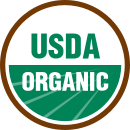1. If you have read GMO Myths & Truths/Earth Open Source, please also read Response To GM Food Myths/AgBioWorld.
2. If you have read the book or seen the documentary Genetic Roulette/Jeffrey Smith, please also read 20 Questions on Genetically Modified foods/World Health Organization (WHO) or Top 20 Urban Myths about GM Crops/Academics Review or Effects of genetically modified T2A-1 rice on the GI health of rats after 90-day supplement/Scientific Reports or The 35S Promoter Has Been Thoroughly Researched/Academics Review.
3. If you have read the study A Long Term Toxicology Study On Pigs Fed Combined GM Soy & GM Maize Diet/Carman, Vlieger et al, please also read Fate of transgenic DNA and protein in pigs fed genetically modified Bt maize and effects on growth and health /Ph.D. Thesis or The Effect of Feeding Bt Maize to Pigs for 110 Days on Intestinal Microbiota /Plos One or Lack of care when choosing grain invalidates pig feed study /Biofortified or Nine recent publications on feeding GM maize to pigs,/GMO Pundit (his list of nine includes two of the studies I already listed)
4. If you have read GMO Feed Turns Pig Stomachs to Mush/Natural News or New GMO Study Raises Health Concerns/Rodale News, or Proof of GMO Harm/Zen Honeycutt of Moms Across America, please also read the following blog posts: GMO Pigs Study – More Junk Science/Mark Lynas, From 'I smell a rat' to 'when pigs fly', bad science makes its rounds/Cami Ryan, The Evidence of GMO Harm in Pig Study is pretty flimsy/Control Freaks, More Bad Science in the Service of anti-GMO Activism/Science Based Medicine, The New Pig Study Gets An "F" In Science/Sleuth4Health, When the Science Sucks, You Can Have it Both Ways!/Illumination, Pigs, GMOs, & Bullshit/Random Rationality
5. If you've read Glyphosate's Suppression of Cytochrome P450 Enzymes and Amino Acid Biosynthesis by the Gut Microbiome: Pathways to Modern Diseases/Samsel & Seneff, please also read Safety Evaluation and Risk Assessment of the Herbicide Roundup and Its Active Ingredient, Glyphosate, For Humans/Pubmed.
6. If you've read the Stunning Corn Comparison/Moms Across America with Howard Vlieger, the Illumination post mentioned in number four above serves to counter at least some aspects of the corn comparison.

